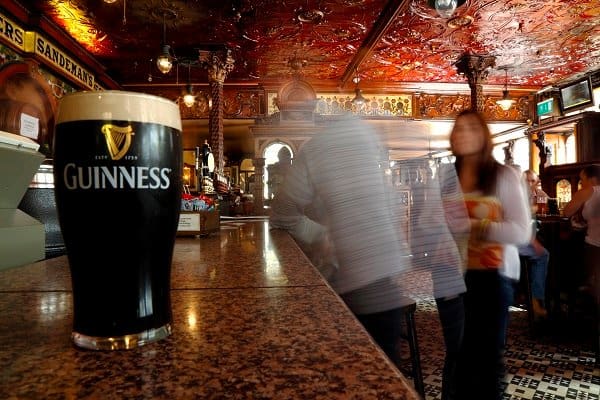If you enjoy a pint of Guinness or Stella Artois at your local, you might want to take a closer look at your glass before sipping.
A new hygiene study conducted by Glass Balustrades UK, in collaboration with 15 pubs across the UK and Ireland, has revealed shocking data about the cleanliness of pub glasses.
As part of the study, inspectors visited 15 different pubs and tested 5 glasses of each brand at each location—amounting to 75 glasses per brand.
The results? Some drinks, including Guinness and Stella Artois, were far more likely to be served in unclean, bacteria-laden glasses than others.
Based on testing 75 glasses of each drink across 15 pubs, these were found to be the worst for bacteria, residue, and poor glass hygiene:
- Guinness – 62% of tested glasses contained yeast build-up, biofilm, and lipstick marks, often due to improper rinsing and the way nitrogen-based beers interact with glass surfaces.
- Stella Artois – 58% of glasses showed high bacterial presence, largely due to the design of branded glasses, which require thorough scrubbing but often receive only a quick rinse.
- Cask Ales (e.g., Doom Bar, London Pride) – 54% of glasses contained stubborn residue, likely due to lower carbonation, meaning beer doesn’t naturally lift grime off the glass.
- Espresso Martinis – 51% of tested glasses had sugar and dairy residue, which can harbour bacteria if not properly scrubbed after each use.
- Red Wine – 48% of wine glasses showed lipstick marks and tannin stains, usually caused by poor hand-washing techniques rather than machine cleaning.
The study found that certain drinks cling to the glass more than others, making them harder to clean thoroughly.
- Guinness and cask ales use lower carbonation, meaning they don’t naturally clean the glass as they are poured.
- Stella Artois and other lagers are often served in branded glasses, which require special care, yet many pubs use a quick rinse instead of a full wash cycle.
- Cocktails with dairy or sugar, like Espresso Martinis, leave an invisible film that traps bacteria if not properly scrubbed.
- Red wine glasses often go through only a quick rinse, leaving behind tannins, oils, and bacteria from previous customers.
One of the main issues uncovered in the study was the widespread use of quick rinsing instead of proper glasswashing. Some pubs rely on outdated glasswashers that don’t reach the required heat levels, meaning bacteria isn’t properly killed off.
Shockingly, 7 out of 15 pubs had glasswashers running below 60°C, well under the recommended 70°C+ for full sanitisation. This means bacteria and yeast survive and multiply, leading to dirty glasses even if they “look” clean.
Before taking a sip, Glass Balustrades UK suggests checking for these warning signs of an unclean glass.
The Bubble Test – If your lager or Guinness has a ring of tiny bubbles clinging to the inside of the glass, it means the surface isn’t properly clean.
Lipstick or Smudges – Any visible marks on the rim of the glass are an instant red flag.
Flat or Foamy Beer – If your beer loses its head too quickly, it could be because of residue from previous drinks interfering with foam retention.
“Most pub-goers assume their glasses are spotless, but our study shows that’s simply not the case,” says a Glass Balustrades UK spokesperson. “If you regularly drink Guinness, Stella, or cask ales, you may want to start inspecting your glass before every sip.”
Next time you order your favourite drink, take a second to check your glass—because what you don’t see could be worse than you think.






Leave a Comment